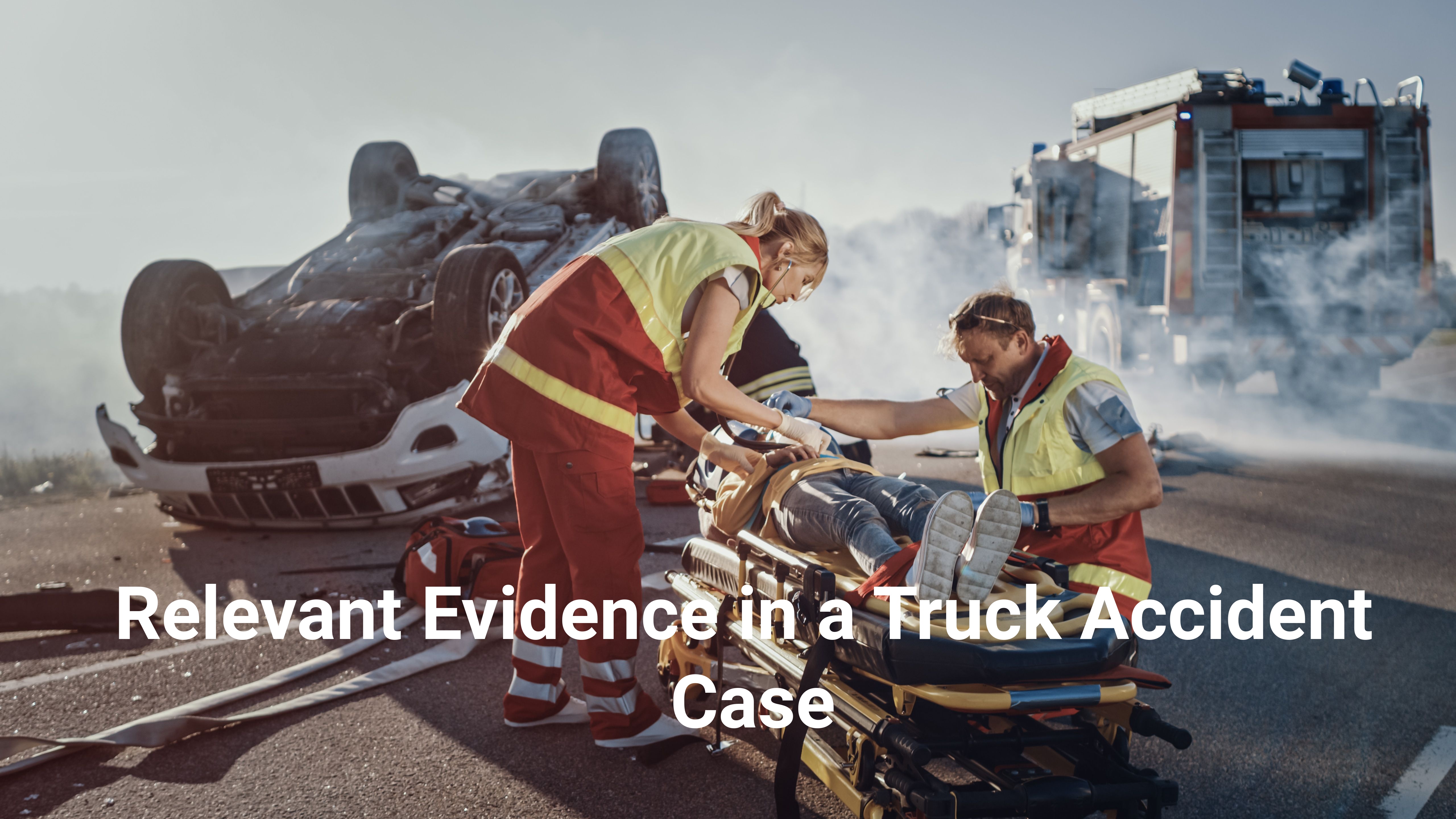
 Request FREE consultation - 1866-758-4529
Request FREE consultation - 1866-758-4529 
In the aftermath of a truck accident, the importance of relevant evidence cannot be overstated. Each piece of evidence is pivotal in determining liability, assessing damages, and securing justice for the victims. This comprehensive guide by a top-rated truck accident lawyer, delves deep into the intricacies of relevant evidence in truck accident cases in Texas, shedding light on its critical role in the legal process.
In truck accident litigation, relevant evidence is the cornerstone of legal arguments. From eyewitness testimonies to expert analysis, every detail contributes to constructing a compelling case. Unlike other types of accidents, truck accidents often involve complex dynamics, including multiple parties, extensive damage, and intricate regulations. As such, the need for thorough documentation and analysis becomes paramount.
Eyewitness accounts provide invaluable insight into the events leading up to the accident. Whether from other motorists, pedestrians, or passengers, these testimonies offer firsthand perspectives that can corroborate or challenge the narratives presented by the involved parties.
Physical evidence encompasses a broad spectrum of tangible objects, including vehicle debris, skid marks, and road conditions. By meticulously documenting these elements, investigators can reconstruct the accident scene precisely, unraveling the sequence of events and identifying potential contributing factors.
In today’s digital age, electronic data plays an increasingly significant role in accident investigations. From onboard vehicle computers to electronic logging devices (ELDs), these sources yield valuable information regarding vehicle speed, braking patterns, and driver behavior. Moreover, surveillance footage from nearby cameras or dashcams can provide corroborating evidence to support or refute witness testimonies.
Expert witnesses, ranging from accident reconstruction specialists to medical professionals, offer specialized insights that can elucidate complex technicalities. Through advanced techniques such as forensic analysis and biomechanical modeling, these experts can comprehensively understand the accident dynamics, bolstering the credibility of the legal arguments presented.
Despite its inherent significance, obtaining relevant evidence in truck accident cases can pose considerable challenges. Various factors may impede the investigative process, from the rapid dissemination of physical evidence to the reluctance of involved parties to cooperate. Moreover, preserving electronic data, such as ELD records and surveillance footage, requires prompt action to prevent the destruction or loss of critical information.
Read More: Critical Evidence to Win 18 wheeler Accident Cases
In the realm of truck accident litigation, the admissibility of evidence is governed by a complex interplay of federal and state laws. While the Federal Rules of Evidence provide a foundational framework, Texas rules of evidence imposes additional requirements or restrictions.
As such, legal practitioners must navigate these intricacies with precision, ensuring the admissibility of key evidence while preempting challenges from opposing counsel.
In conclusion, relevant evidence serves as the linchpin of truck accident cases, shaping the trajectory of legal proceedings and ultimately determining the outcome for the parties involved. From eyewitness testimonies to expert analysis, each piece of evidence contributes to the mosaic of facts that underpin the pursuit of justice. By understanding the significance of relevant evidence and navigating the challenges inherent in its procurement, legal practitioners can effectively advocate for their clients and secure favorable outcomes in truck accident litigation.
Expert witnesses in truck accident lawsuits
Physical condition of truck drivers
Preserving evidence after an accident
Evidence That Should be Collected to Win a Truck Accident Case